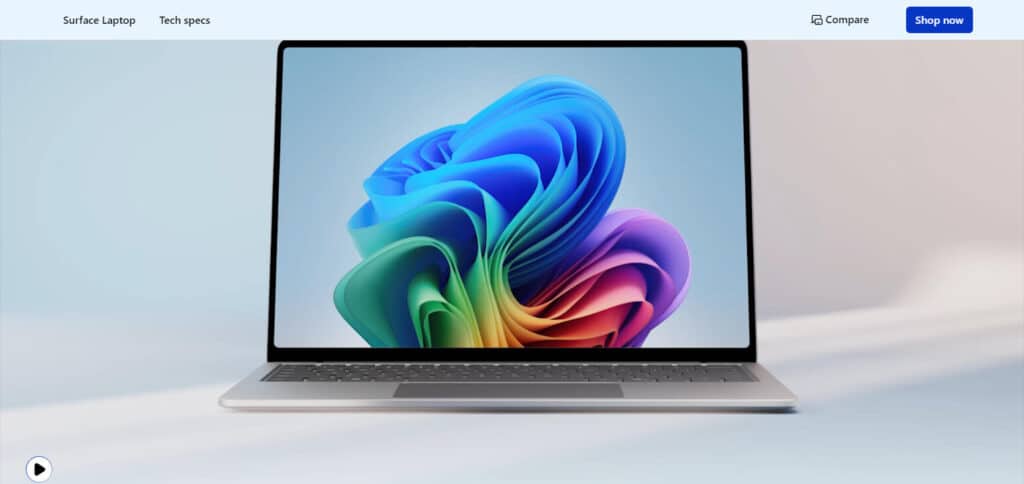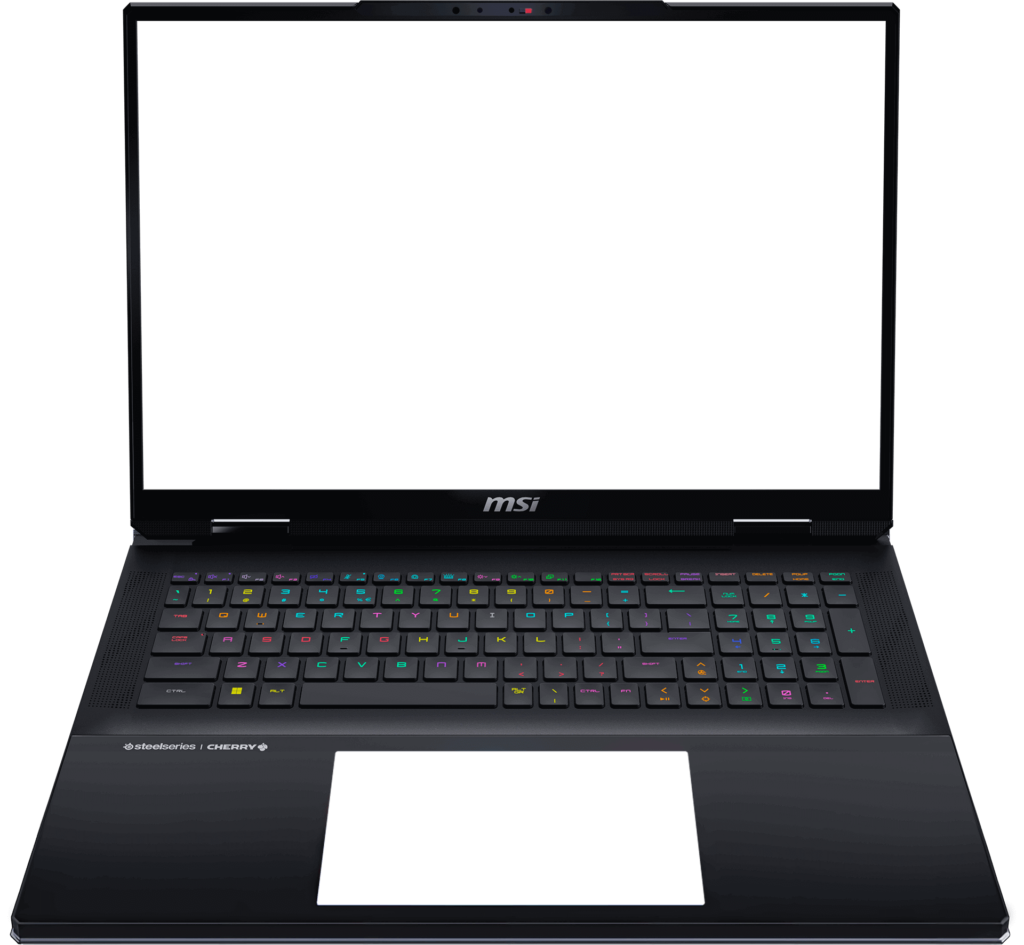This article is focused on the best laptops for engineering students. Choosing the right laptop is essential for any engineering.
Courses requiring more complex tasks, such as running simulator software or coding and designing.
Here, I will cover the best alternatives to provide optimal performance, portability, and reasonable prices for engineering students.
Key Points & Best Laptops For Engineering Students List
| Laptop Model | Processor |
|---|---|
| Dell Inspiron Plus 14 | Intel® Core i5 12th Gen |
| Microsoft Surface Laptop 7 | Intel® Core i5 10th Gen |
| Acer Aspire Go 15 | Intel® Core i3 11th Gen |
| Acer TravelMate P6 | Intel® Core i7 11th Gen |
| Asus Zenbook 14 OLED | Intel® Core i7 12th Gen |
| Asus TUF Gaming A16 Advantage Edition | AMD Ryzen 7 5800H |
| MSI Titan 18 HX | Intel® Core i9 12th Gen |
| MacBook Air M2 | Apple M2 |
10 Best Laptops For Engineering Students
1.Dell Inspiron Plus 14
Because of all these features, an engineering student would find the Dell Inspiron Plus 14 to be the best out of all the laptops thanks to its competent 12th Gen i5 core processor, stressed RAM and high-quality resolution display.

It performs well for intense engineering software applications, which are highly required, and provides a good compromise between performance and portability for the classroom business and outside of the classroom.
Features Dell Inspiron Plus 14
- Processor: Powered by the 12th Generation Intel Core i5, it can handle demanding applications and perform better even in a multitasking environment.
- Display: A slender notebook with a 14-inch Full HD screen for more precise and immersive views.
- Memory (RAM): The laptop has 8GB of RAM, making it work versatilely and perform better without lagging.
- Storage: It has an SSD of 512GB, providing quick data access and more room for files and applications.
- Design: It has a thin and lightweight body that makes it portable and suits a student’s lifestyle
- Battery Life: It can take a long before requiring a recharge, allowing the user to work for more hours.
2. Microsoft Surface Laptop 7
The Microsoft Surface Laptop 7 is a powerful option for engineering students, as it is equipped with a 10th Gen Intel Core i5 chip and a cutting-edge touchscreen.

The computer’s lightweight and respectable performance allows it to easily run engineering applications and complete regular school activities efficiently and effectively.
Features Microsoft Surface Laptop 7
- Processor: The laptop is leased to a 10th-generation Intel Core i5, which ensures excellent performance. It can complete most daily chores and moderate multitasking.
- Display: The 13.5-inch PixelSense panoramic touchscreen display enhances the experience by allowing vivid images and interactivity.
- RAM: Running in 8GB RAM, the computer is sufficient for performing basic operations and common app usage.
- Storage: Provides an option of up to 512GB SSD, where documents, applications and other items can be stored quickly when needed.
- Design: Skinny in width and weight so the students can carry it without any action or trouble.
- Battery Life: Exceptional battery life, allowing the device to be used throughout the day without worrying about recharging; helpful in attending classes and studying.
3. Acer Aspire Go 15
The Acer Aspire Go 15 is an inexpensive engineering laptop fitted with Intel Core i3, with total HD screen resolution prisms.

This reasonably priced laptop works well for basic engineering tasks, though it may not perform the heaviest applications either.
Features Acer Aspire Go 15
- Processor: The processor is an Intel Core i3 and can handle basic computing and a bit of multitasking.
- Display: The 15.6-inch Full HD screen is an adequate size to be utilized well for work and video watching.
- RAM: It has 4GB of RAM, sufficient for most general tasks but relatively poor for heavy tasks.
- Storage: Fast data access with the 128GB SSD, but additional solutions are needed if more data is required.
- Design: It is a simple and functional design that combines strength in the construction to a price that students on a budget seek.
- Battery Life: Average battery life is expected to be normal in use, which is good enough for taking classes and studying.
4. Acer TravelMate P6
The Acer TravelMate P6 is perfect for engineering students because it is equipped with an Intel Core i7 and is portable and solid.

Its powerful performance ensures the proper functioning of engineering programs. It allows the performance of multiple tasks at once, thanks to the long operating time, making it suitable for both studies and practice.
Features Acer TravelMate P6
- Processor: An Intel i7 is provided, making it capable of effectively performing processor-intensive tasks and multitasking.
- Display: Full HD screen measuring 14 inches with anti-glare coatings that help to enhance visualization and decrease visual fatigue.
- RAM: 16GB of RAM ensures smooth operation without lag in running applications and performing tasks.
- Storage: 512GB SSD enables files and applications to be stored relatively faster than on a standard hard disk.
- Design: Comfortable to ferry and strong, built for movement and in flights and studies.
- Battery Life: The battery lifespan is extended, enabling this appliance to be used for long periods, incorporating studying and travelling.
5.Asus Zenbook 14 OLED
The Asus Zenbook 14 OLED is one of the best choices for engineering students, considering its brilliant OLED screen and an equally impressive Intel Core i7 processor.

Its slim profile, high specs, and clear graphics can be used with demanding engineering software and for watching a movie anywhere.
Features Asus Zenbook 14 OLED
- CPU: Intel Core i7 that performs intensive and multi-tasking activities.
- Screen: 14-inch OLED 4K resolution screen retains and reproduces accurate colour content and contrasts for better viewing.
- Random Access Memory (RAM): 16GB of RAM allows good operational speed and performance with heavy usage software.
- Storage Devices: 512GB SSD provides quick reading and writing of documents and has enough slots for programs and their data.
- Weight: Sturdy, elegant, compact and lightweight design allows easy transport and use outside home premises.
- Self-heating: The battery ranking is outstanding as one is able to freely use the laptop for a long time, which is good when learning or travelling.
6. Asus TUF Gaming A16 Advantage Edition
The laptop Asus TUF Gaming A16 Advantage Edition is an equally desirable choice for engineering students as it is furnished with an AMD Ryzen 7 5800H and accompanying graphics card.

Gaming performance-wise and built-wise, it can withstand heavy engineering software applications and multitasking, not to mention the high productivity and clarity driven by a high refresh rate display.
Features Asus TUF Gaming A16 Advantage Edition
- Processor: It comes with an AMD Ryzen 7 5800H processor, facilitating quick and effective operations when playing games or learning design programs.
- Graphics: It is furnished with an AMD Radeon graphics card, which improves graphics quality while performing graphics-centered tasks or playing games.
- Display: Thanks to a 5120 x 3840-pixel resolution, it effortlessly supports 16-inch Full HD screens with ultra-high refresh rates, proving useful for gameplay.
- RAM: The Asus TUF Gaming A16 comes with 16GB of RAM, which makes it possible to run multiple processes simultaneously without any challenges.
- Storage: Thanks to 512GB SSD, the owner will have no issues loading data quickly, and there is enough space for many games and files.
- Design: It has top-quality, military-grade structures that withstand harsh handling, primarily for gamers, and are eye pleasing.
7.MSI Titan 18 HX
The MSI Titan 18 HX is a powerhouse for engineering students, boasting an Intel Core i9 processor and high-end graphics.

Its 18-inch display and exceptional performance make it perfect for intensive engineering tasks and simulations. This laptop combines raw power with a large screen, ideal for handling complex projects and multitasking.
Features MSI Titan 18 HX
- Processor: It is ideal for handling heavy computing and high-end applications as it is built on an Intel Core i9.
- Graphics: Nvidia GeForce RTX graphics are also used which are good for games, 3D graphics, and many other activities.
- Display: An 18-inch high-resolution portable display with huge screen space and more detail for improved usability.
- RAM: The capacity extends to as much as 64 GB RAM, supporting multi-tasking and very large, complex and challenging work.
- Storage: Multiple expansion slots with ample storage containing many SSDs provide excellent storage and fast data delivery for extensive files and applications.
- Design: Rugged and tough cStoragetion made to perform powerfully and endure constant usage.
8. Mageook Air M2
Engineering students are some of the most dependable professionals., The MacBook Air M2 has been designed especially for them, with an extra boost from Apple’s awesome M2 chip and an elegant, light body.

With excellent performance, great battery life, and a crisp Retina display, it can run heavy engineering applications and multitask while providing flexibility and efficiency that are suitable for use in motion.
Features MacBook Air M2
- Processor: Powered by Apple’s M2 chip, offering impressive performance and efficiency for various tasks.
- Display: The 13.6-inch Retina display with True Tone technology provides vibrant colours and sharp visuals.
- RAM: 8GB of unified memory ensures smooth multitasking and efficient handling of applications.
- Storage: Starting at 256GB SSD, with options for higher capacities, providing fast access to files and ample storage.
- Design: Slim, lightweight, and ultra-portable, featuring a sleek aluminium chassis.
- Battery Life: Long-lasting battery supports extended use, ideal for Storage productivity and travel.
9.Intel® Core
The i5, i7 and other Intel® core processors are among the most essential components for the best laptops for engineering students.
They ensure impressive performance and multitask capabilities needed for demanding engineering applications and simulations, therefore running.

Due to the number of generations available, these processors provide sufficient performance and stability for student and work-related activities.
Features Intel® Core
- Performance: The lowest type of substrate is represented by the i3 types. At the same time, the sequentially higher levels available are i5, i7, and i9, which will help execute very complex processes beyond the basic forms of computing.
- Multitasking: With highly efficient multi-core configurations, multiple tasks can be processed simultaneously, or even heavy software can be used without performance reduction.
- Power Efficiency: Integration of power control technologies helps in both performance and energy management so that the usage time for the device can be extended.
- Graphics: Basic graphical functions employ integrated graphics, and more powerful devices could have additional graphics cards for gaming and other jobs.
- Generations: The development of many generations (e.g., 12th Gen, 13th Gen) is aimed to quickly and effectively increase characteristics and efficiency and basing support of modern technologies.
10.V15 39.62cms – 12th Gen Intel i5
The V15 39.62cms model with a 12th Gen Intel i5 processor is perfect for engineering students. The configuration offers a powerful Intel i5 and a 15 6-inch display

, providing efficiency and sufficient space for engineering software applications. This laptop is neither too powerful nor too cheap, which is appropriate for educational requirements.
Features V15 39.62cms – 12th Gen Intel i5
- Processor: 12th Gen Intel Core i5 is considered influential for executing heavy applications concurrently.
- Display: 15.6-inch Full HD display combined with clear visibility facilitates work or entertainment comfortably.
- RAM: More often than not, it is equipped with 8GB of RAM, facilitating efficient multitasking workloads.
- Storage: 512GB SSD ensures performance and space to accommodate files and software.
- Design: Mostly valuable and robust for daily activities and schooling.
- Battery Life: The performance of rechargeable lithium batteries is fair, allowing prolonged battery usage, and is suitable for school work studies and general usage.
How To Choose the Best Laptops for Engineering Students
Processor: Selecting high-end processors such as Intel Core i5/i7 or AMD Ryzen 5/7 will allow for efficient use of vast engineering software resources without any hindrances.
RAM: Target a minimum of 8GB RAM and prefer 16GB for smooth operations and better simulation performance.
Storage: Go for SSD to facilitate quicker booting or accessing of information. 512GB and above is recommended for storing large applications and files.
Graphics: Discrete graphics cards ( NVIDIA or AMD) will be pretty helpful in 3D modelling and Storagemulations, among other areas of engineering computer usage.
Display: High-definition display of Full HD and above will come in handy in cutting through visual fatigue after long-duration studies by enhancing visibility.
Battery Life: Consider laptops that can last long, even when used continuously for lectures or studies.
Portability: Considering portability, a thin profile and lightweight help move around between lectures and study places.
Conclusion
The best engineering laptop’s performance, portability, and price must be balanced before settling for one.
Models with powerful processors, a considerable amount of RAM, and a power backup are to be sought. An additional high-resolution display and a long battery life are also required.
Choosing the right laptop will boost productivity and efficiently assist in complex engineering activities.









